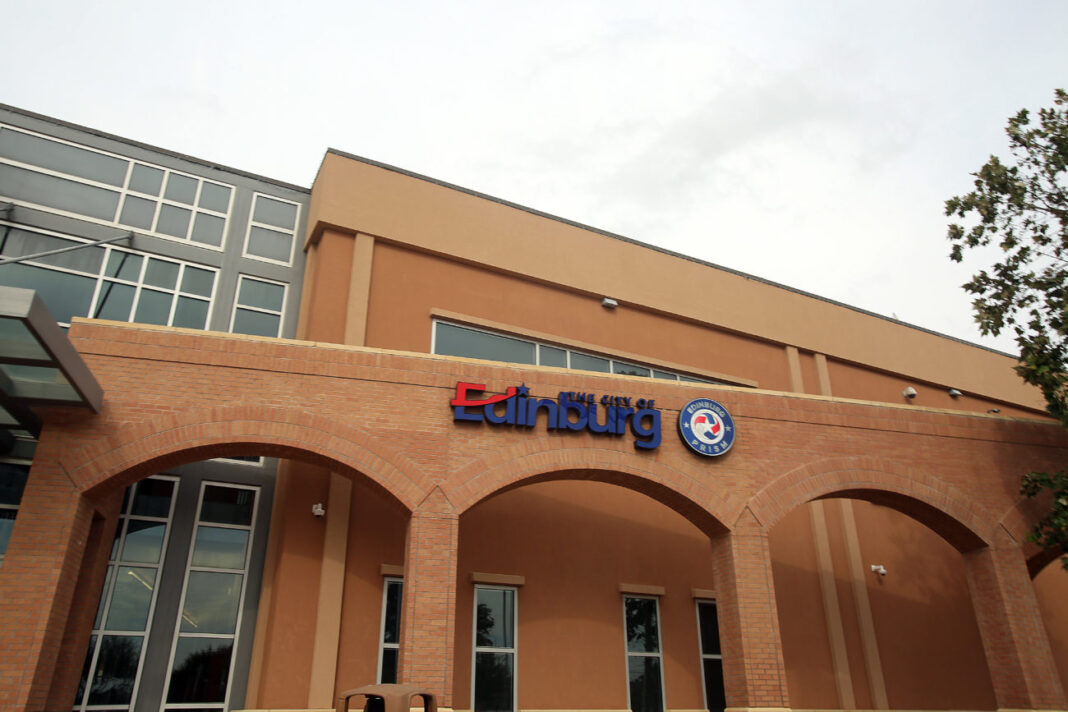|
Only have a minute? Listen instead
Getting your Trinity Audio player ready...
|
The Edinburg City Council got its first look at the annual budget that city staffers are proposing be approved for the upcoming 2023-24 fiscal year.
The budget recommendations include keeping the tax rate the same at 64 cents per $100 valuation, a 3% across-the-board pay increase for all non-civil service employees and the creation of two new staff positions.
Further, assessed values have increased by more than $771 million. But while that figure represents a nearly 13% increase compared to 2022, the city will still have to dip into its general fund to create a balanced budget, according to Edinburg Finance Director Ascencion Alonzo.
“It’s not a balanced budget. We’re using fund balance. We’re using some funds to balance it out,” the finance director said at the top of Monday’s budget workshop at Edinburg City Hall.
The city’s expenditures are projected to exceed its revenues by just over $4.13 million, according to figures outlined in a 233-page budget book presented to the council.
“The budget expenditures proposed today are $89,829,776,” Alonzo said.
Meanwhile, the budget book shows projected revenues will clock in at nearly $85.7 million.
Nonetheless, Edinburg has enough in reserves for a sizeable rainy day fund of about $25.6 million.
“That would put us at 28.57% of estimated (operations) expenditures. Our requirement is 25%,” Alonzo said, speaking of the city’s policy to maintain enough in cash reserves to fund at least 25% of annual operational costs.
Still, Monday’s discussions left councilmembers with several questions, particularly from Place 4 Councilman David White.
“Last year … I had a conversation concerning a balanced budget. That it should be revenues versus the expenditures. Is that the definition we’re using today? Or are we using revenues plus borrowing some money and everything else to make sure we balance the budget,” White asked at the beginning of the workshop.
His question is what prompted Alonzo to admit that the city will need to dip into its reserves in order to present a balanced budget.
There are some issues that are currently hindering Edinburg’s finances.
For one, the city has not increased its utility rates in years, despite Edinburg’s explosive population growth and the subsequent effect that has had on how much it costs to provide those services.
Solid waste disposal rates — what residents pay for their trash service — have remained the same since 2004, Edinburg City Manager Myra Ayala said.
Meanwhile, water and sewer rates have remained the same since 2011.
Thus far, those two operations remain self-sustaining, Alonzo said. But, as those stagnant rates fail to keep up with Edinburg’s growth, they have the potential to impact the city’s bottom line.
“It will affect our debt capacity for the utilities account, for the utility fund. It’ll affect any new infrastructure that we might have to put into place,” Ayala said.
Ultimately, the city’s credit rating could be dinged the next time it tries to finance a largescale public infrastructure project.
And it could begin to affect the operability of the utility departments themselves.
“Long term, it does affect us because operations, there’s not enough funding. Operations, capital outlay, any services, you start decreasing those. So, it is important that you have the right rate structure … because, if not, the department starts suffering,” Alonzo said.
Earlier this month, the council approved the hiring of Willdan Financial Services to conduct a comprehensive rate study and make recommendations on how the city can bring its utility fees up-to-date.
But again, White lamented at how slow the city has been to provide answers.
“I’ve asked about this a year ago and we’re barely starting to do a rate study,” White said, adding that he “couldn’t get a straight answer” to his questions during budget talks last fall.
The city’s finance department has undergone a significant amount of turnover in the last year.
Just after Edinburg wrapped up its budget process last September, then-Finance Director Dagoberto Soto Jr., resigned.
Flor Segura served as interim finance director until Alonzo’s hiring earlier this summer.
Alonzo had previously served as the city’s finance director for decades until he was fired in 2018 by then-Edinburg City Manager Juan Guerra during a period of turmoil in the city’s politics.
White said he felt confident in asking his budget questions again on Monday because he knew Alonzo would have an answer.
The council is expected to meet again on Sept. 5, where they will be asked to propose a tax rate.




